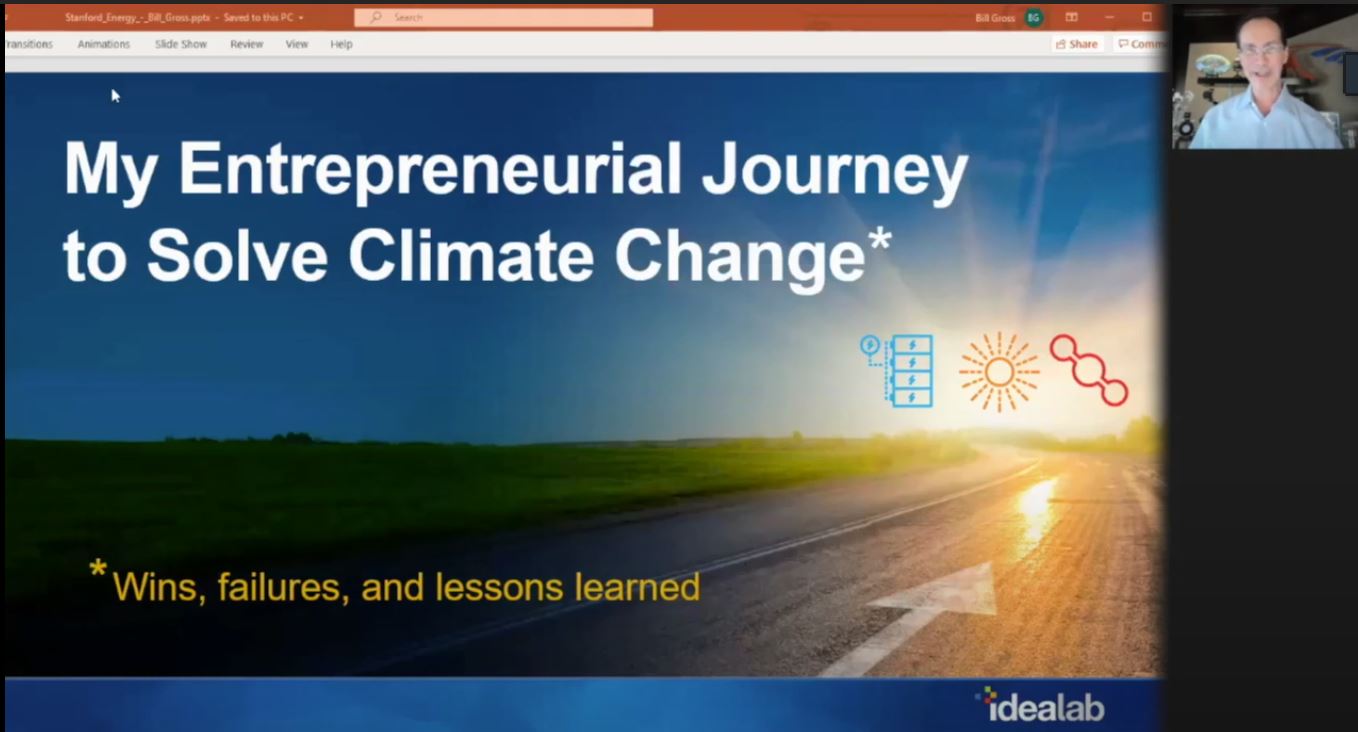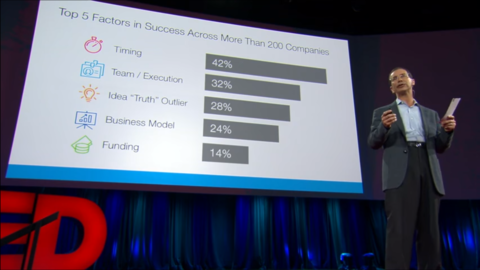Sign up here to get the latest news, updates and
special offers delivered directly to your inbox.

I started Idealab with a dream to make something like a modern version of Thomas Edison’s Lab where we could test ideas under one roof and then spin them off into separate companies. These companies would have their own management teams and their own equity pools, while at the same time benefitting from shared experiences and resources.
With lots of help from so many great people, my dream became a reality. We have come up with more than 5,000 ideas, started more than 150 companies, and had more than 50 successful IPO’s and acquisitions. We are most proud that we created more than 10,000 jobs and thousands of new entrepreneurs.
We learned lots of lessons - some great and some painful - and it’s my honor to share them with you here. If even one tiny bit of one of these lessons can help you be more successful, that would make me so happy. I love entrepreneurship, and hope that our lessons can help more companies and entrepreneurs to be successful and change the world in a positive way.
I am so grateful to all the people who helped me make the Idealab “experiment” work for these 25 years.
Sincerely,

Chairman and Founder,
Idealab
BUILD A COMPLEMENTARY TEAM
You need to have diversity of thought in your company. In addition to diversity of thought, diversity people, you need diversity of styles. You need people who look at the world in different ways and have different viewpoints from their outset.
I learned this very late I was probably 35 years old before I learned this. Because up until then, I was hiring all people like myself. I would go to try and find people that I went to school with, other people who I liked at work, really to try and build up a company of people like me. But then I finally reached a breaking point when I learned you needed to have other styles. In fact, other people that maybe I didn’t get along with, but I had to learn how to have mutual trust and respect for those other styles, to get the best out of the company.
So, let me explain four caricatures of people. No people are exactly these four caricatures, but they all have varying amounts of these four things that I am going to call letters - E, P, A, and I. E is the entrepreneur, P is the producer, A is the administrator, and I is the Integrator.
I learned these things from a great CEO coach named Ichak Adizes and he has a great book called Managing Corporate Lifecycles where he talks about the life cycle of a company and how you need these different skills at different stages of a company. But to be successful as a company to be in prime, you need all of them. So, let me give you an example.
A company always starts out with an E, the entrepreneur. The E is the dreamer, the E has the idea, and the entrepreneur is the only person who can start the company. The E gets the company going, and if you look at time on this axis and success on this, it's going to go up and up and up and up to the right but eventually, it will fail. If the E never can get any P, and by P, I mean producer. If it can't produce a product if it can't ship a product if it can’t make some revenues.
Now an E, an E person like myself, can also have a P skill also can have the ability to get something done. But often, the E needs to bring in other P talent to be successful. Then the company can go further. But eventually, even with E and P, a company will start to break at the seams if it doesn’t bring in some A.
The A skill is the administrative skill. It's the ability to pay the bills, pay the rent, put the money in the bank account, keep the trains running on time. Put all the systems in place to keep the E and P running properly. And then finally, even with A, eventually the company will fall apart at the seams it doesn't bring in some I, the integrator skill. Why does the company need I?
Well, the A, E, & P don't necessarily get along. In the extreme, they would hate each other's guts. Because they are just completely different mindsets, you think about the different mindsets of those people so you need and I skill that can help resolve conflict, that can help bring those people together, that can make sure that there is mutual trust and respect between those 4, 3 three other personality types. But I'll give you a specific example that can get some color to that.
Imagine that we're together in this room, with four extremes of those caricatures. And the four of us are all in a conference room and were talking and then one of us notices over on the window over there, there's some dirt on the window. Well, let me look at tell you about the different ways that those four people would look at it.
The P and this will help you identify which kind of person you are. The P would look at that and say, boy right after this meeting is over, we got to go clean that window. I don't like that over there.
The A would look at that and say, you know I think something wrong with the window over there. Let me make up a form for everything that is wrong in the company and put them in order and we will go back to them in chronological order until they're all solved.
The E would look at it and say, look at the parking lot outside across that window there. I wonder what we’re going to put over there. So, the E doesn't even see the scratch, the dirt on the window, anything sees through the window, is looking to the future looking over the mountains to figure out what's next.
And the I looks at that dirt on the window and says, I wonder what those three people are thinking. The I is more concerned about the other people than about the window, the process, any of that.
So, think about how different people look at the exact same thing from those different angles and how you want to have all those views in your company, and you have, want to have all those views in your company working in harmony.
It is very hard to achieve but it is very valuable to achieve. And it was eye-opening to me to realize that that was even something possible to achieve. Now when I started a company, I really think about the roles and desires of people, even when I'm hiring people. I'm looking at what skill they have and what skill they want to have and what role they want to have in the company and make sure that is filling a deficiency of the company or not overloading on something the company already has too much of. Because again, the most important thing is to have all four of those traits in beautiful harmony.
That is building the perfect complementary team.

Bill Gross discusses his entrepreneurial journey to solve climate change

SALT Voices: Bill Gross | Founder & Chairman, Idealab

Ground-breaking solar technologies and why clean technology is a trillion dollar opportunity

Bill's talk on the single biggest reason why startups succeed

Bill speaks about regulation designed to foster technology-driven growth

An informative and inspiring talk on innovation and starting companies

I started Idealab with a dream to make something like a modern version of Thomas Edison’s Lab where we could test ideas under one roof and then spin them off into separate companies. These companies would have their own management teams and their own equity pools, while at the same time benefitting from shared experiences and resources.
With lots of help from so many great people, my dream became a reality. We have come up with more than 5,000 ideas, started more than 150 companies, and had more than 50 successful IPO’s and acquisitions. We are most proud that we created more than 10,000 jobs and thousands of new entrepreneurs.
We learned lots of lessons - some great and some painful - and it’s my honor to share them with you here. If even one tiny bit of one of these lessons can help you be more successful, that would make me so happy. I love entrepreneurship, and hope that our lessons can help more companies and entrepreneurs to be successful and change the world in a positive way.
I am so grateful to all the people who helped me make the Idealab “experiment” work for these 25 years.
Sincerely,

Chairman and Founder,
Idealab